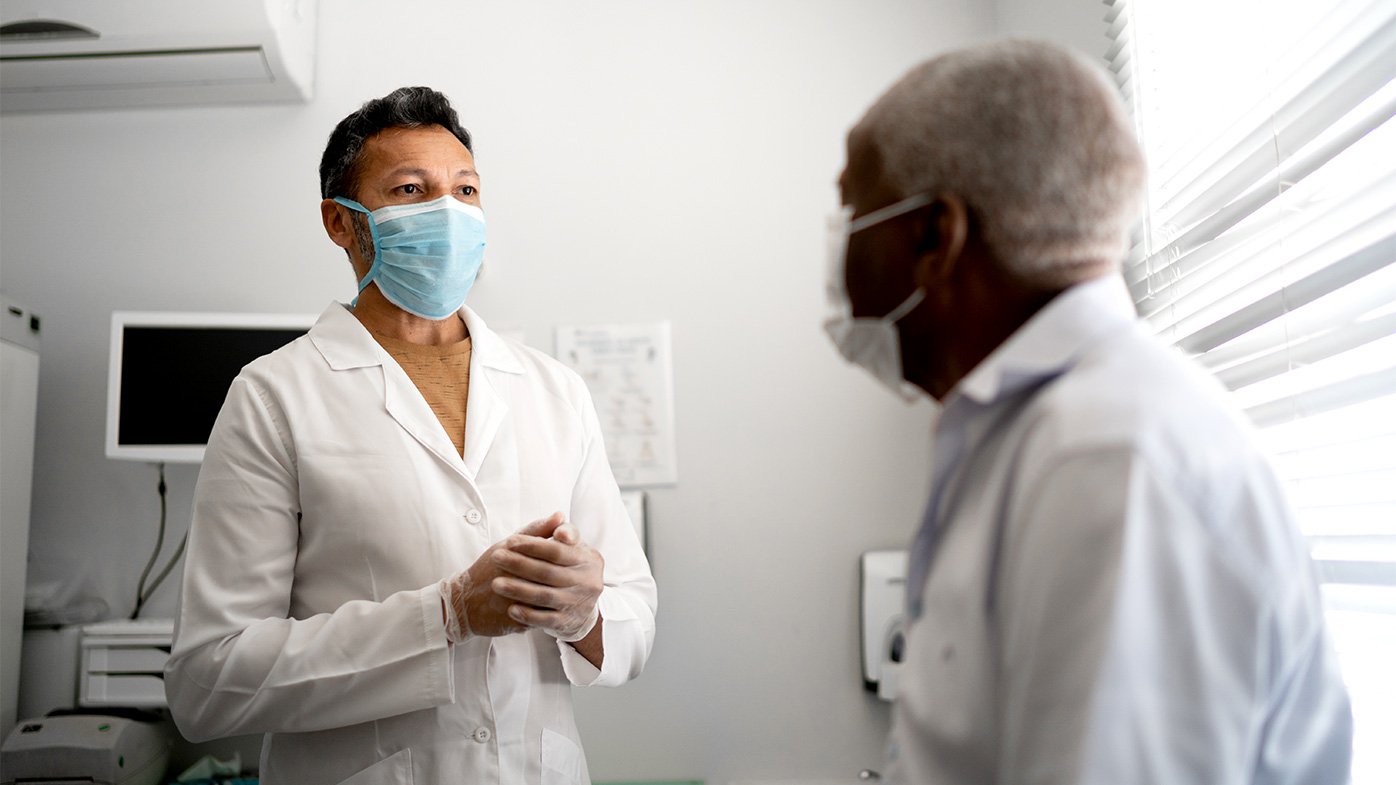“We were in a leadership meeting, and one of my colleagues shared the news,” said Brett, vice president of Clinical Trial Strategy and Operations at the company, which conducts clinical trials across approximately 40 countries spanning 40 disease areas. “There was just a collective sigh around the room because we all knew that this was going to be big, impactful, and have an effect on our entire society for generations to come.”
It was a moment Brett and his research and development team hoped wouldn’t arrive but had been planning for since COVID-19 surfaced, acutely aware that conducting clinical trials is one of the company’s most critical pursuits to develop and bring new medicines to patients in need. With a pandemic officially declared, the company’s entire Global Development Operations team sprung into further action, coordinating with clinical trial investigators overseeing trials onsite at hospitals and other healthcare facilities around the world.
In fact, Bristol Myers Squibb was one of the first companies to proactively provide investigators with guidelines and principles on how to manage clinical trials amidst the pandemic. Its overall goal: protect the safety of patients in studies as well as the safety of its employees and staff at clinical trial sites, while also ensuring regulatory compliance and the scientific integrity of the company’s trial data. This required putting some activities on hold to align with local and federal government rules as well as global health authority guidelines for factors such as patient travel to attend protocol-specified visits, and it came as resources at many trial facilities, such as bed space and medical staff, had to be redirected to combat COVID-19.
Swift, proactive efforts, collaboration, and a heavy dose of ingenuity enabled Bristol Myers Squibb to keep as many of its trials as possible on track. In fact, as of November, 80% of its clinical trial investigator sites have resumed patient enrollment activities. But beyond the continuation of clinical trials, the company’s efforts have also added clinical trial efficiencies likely to long outlast the pandemic — changes that will help the company be even better prepared as cases of COVID-19 are on the rise again in various places this fall.
Turning challenges into possibilities
One such clinical trial efficiency was providing remote check-in options for patients via telemedicine, which streamlined trials while adding significant convenience for trial participants.
“For the most part, patients used to go to a single site or institution where all of their tests would be conducted. But now, with COVID-19, we’re finding that perhaps you can go to a facility closer to your home for a check-in, or meet via telemedicine instead,” Brett said.
Bristol Myers Squibb also began facilitating direct-to-patient shipping for some clinical trial medications, a step more delicate and less simple than it sounds. The company had to take many precautions to ensure patients accessed their medicines responsibly. This included evaluating which medications were safe to be self-administered and ensuring that the treatment process was adequately monitored for patient safety. Only in those instances did Bristol Myers Squibb then utilize a third-party carrier to deliver medication on its behalf, since the company isn’t authorized to handle shipments to patients itself.
As the company continues to navigate the management of clinical trials during the coronavirus pandemic, the simplification of the clinical trial research structure has emerged as a priority. For some trials, for example, the company plans to reduce the number of data points for which it tests, eliminating data-gathering around tangential questions and exploratory hypotheses that wouldn’t yield statistical value.
“We realized that we could do just as much with less,” said Nancy Rivera-Sosa, vice president, Regional Clinical Operations. “As scientists, we want to have access to as much data as we can, but what we’ve found through COVID-19 is the value in being as simple as possible, because the complexity that we put into our trials created that much more complexity navigating the pandemic.”
The pandemic’s recent resurgence in some geographies shows that it continues to progress in unpredictable ways, but one thing remains certain for Bristol Myers Squibb: its commitment to patients.
“The pandemic has been so stressful for everyone,” Rivera-Sosa said, “but through it all, we’ve remained focused on doing everything we can for our patients.”




